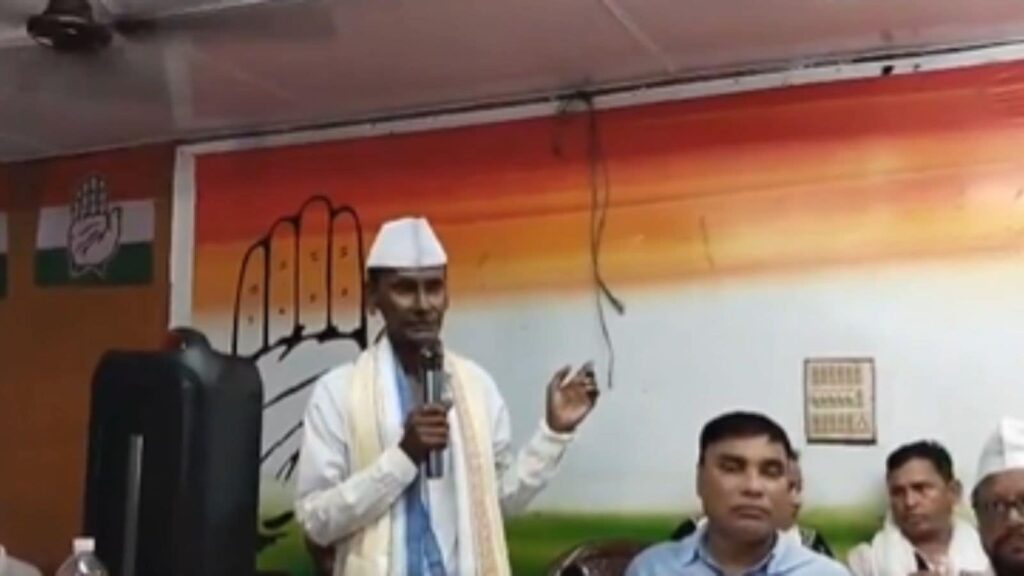A lifelong Congress Seva Dal worker, 74-year-old Bidhu Bhushan Das is surprised and alarmed to find himself embroiled in a controversy after singing a line from Rabindranath Tagore’s iconic Amar Sonar Bangla — a song he says he has cherished since childhood.
A video of him humming the line “Amar Sonar Bangla, ami tomay bhalobasi (My golden Bengal, I love you)” at a Congress Seva Dal event in Assam’s Sribhumi district has been widely shared by the Assam BJP unit and state ministers, who slammed it as a rendition of the Bangladesh national anthem. The Seva Dal is the grassroots volunteer wing of the Congress.
On Wednesday, Chief Minister Himanta Biswa Sarma said he had directed police to take action against the Sribhumi District Congress Committee. He accused the Congress of performing “the national anthem of Bangladesh in place of the national anthem of India,” calling it “disrespect to India” and “an endorsement of the claim of various Bangladeshi people that the Northeast is their part and parcel”.
Back in his village Bhanga in Sribhumi, Das said he was startled by the reaction. He had been called to speak at a Congress Seva Dal Extended Executive Committee meeting in Sribhumi town, around 18 km from his village.
“I am just an ordinary Congress worker who has been working for the Seva Dal for over five decades. Like all meetings, it began with Vande Mataram and ended with the Indian national anthem. When I was asked to make a speech, I took the name of ‘Biswakabi (World Poet)’ Rabindranath Tagore and this song came to my mind. I just recited the line ‘Amar Sonar Bangla, ami tomay bhalobasi’ and then continued with my speech. I was paying homage to the Biswakabi and to Bengal,” he told The Indian Express.
The song was written by Tagore in response to the 1905 Partition of Bengal as a unifying call to a region divided along communal lines. When Bangladesh was created in 1971, it adopted the song’s first 10 lines as its national anthem.
Sribhumi district, in Assam’s largely Bengali-speaking Barak Valley bordering Bangladesh, was deeply impacted by the 1947 Partition. The area now under Sribhumi (formerly Karimganj) was part of Sylhet — while the rest of Sylhet went to East Pakistan, this portion remained with India.
Story continues below this ad
Das said his fondness for the song long predates Bangladesh’s founding. “I learnt the song when I was a child studying in pathshala (school). We were taught it there and it instantly stirred my heart. Ever since then, I have loved it,” he said.
An academic from Sribhumi, who did not wish to be identified, said it is not unusual for the song to be sung locally. “For us Bengalis, this is a well-loved patriotic song about Bengal, and not Bangladesh, along with other Tagore songs like ‘Banglar mati, Banglar jol (Bengal’s soil, Bengal’s water)’. It is sung at different cultural functions.”
Tapash Purkayastha, president of the Sribhumi District Congress Committee, said Das had served as Bhanga panchayat president in the 1980s. “He is a lifelong Seva Dal worker, one of the most elderly active workers in the district. He had recited one of Biswakabi’s lines during the meeting, and that action is being distorted,” he added.
© The Indian Express Pvt Ltd

